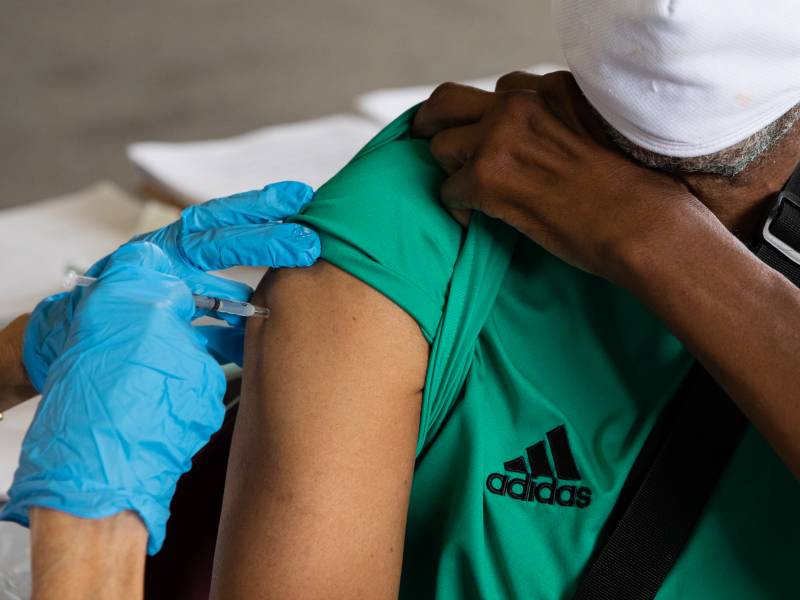The expert panel's vote also supported the FDA authorizing a booster dose for people at high risk of contracting the disease or developing severe symptoms, a group that includes health care workers exposed to the virus on the job and people with underlying health conditions.
"This first FDA authorization of a COVID-19 vaccine booster is a critical milestone in the ongoing fight against this disease," Pfizer CEO Albert Bourla said in a statement. "We believe boosters have an important role to play in addressing the continued threat of this disease, alongside efforts to increase global access and uptake among the unvaccinated."
A separate panel of advisers to the Centers for Disease Control and Prevention is meeting to discuss COVID-19 boosters and make specific recommendations about use of the Pfizer booster. A vote by that panel is expected Thursday afternoon. If the CDC signs off on the details of a booster, it could be rolled out to eligible people later this week.
Moderna said at the beginning of September that it has submitted initial data on its booster to the FDA. The company is developing a third dose that, compared to the original shots, contains half the amount of mRNA. Clinical testing showed this booster, when given six months after the completion of initial immunization, prompted a strong antibody response to the coronavirus, including the delta variant.
Johnson & Johnson, whose vaccine is given as a single shot, said in August that it has evidence that a booster shot prompts a strong immune response in people six months after their initial shot.
On Tuesday, J&J released additional information on use of a booster dose, reporting that giving people a second shot two months after the first one boosted protection against moderate to severe disease from about 75% to as much as 100%.
In addition, the company said waiting to give that second shot until six months after the first shot boosts antibody levels substantially more than giving it after two months. The results suggest that waiting longer for that second shot provides stronger protection.
J&J said it has given the information to the FDA and plans to submit it to other regulators as well.
Despite the FDA advisory committee's rejection of a broad booster rollout of the Pfizer vaccine, some public health officials suggest that this could change. Dr. Anthony Fauci, chief medical adviser to the president, told NPR's Morning Edition on Monday that he expects more data to become available in the next few weeks and that it would "actually modify and expand the recommendation" for the use of boosters to more people. "But for now we'll go with what the FDA advisory committee has recommended," he added.
Copyright 2021 NPR. To see more, visit npr.org.
9(MDAxOTAwOTE4MDEyMTkxMDAzNjczZDljZA004))

9(MDAxOTAwOTE4MDEyMTkxMDAzNjczZDljZA004))
